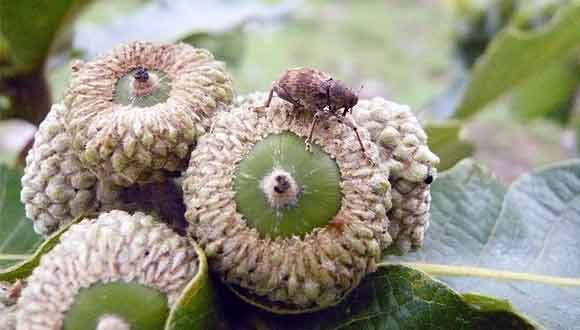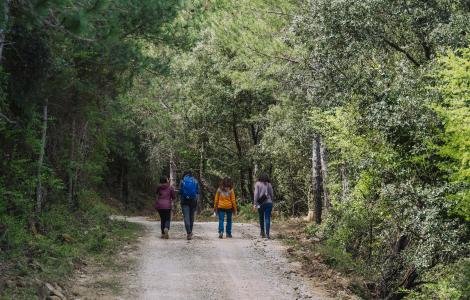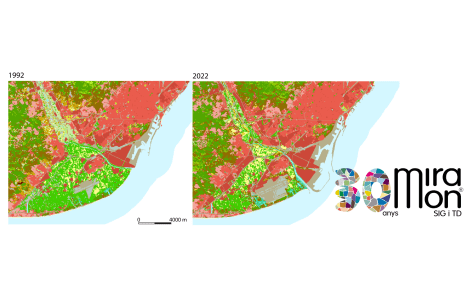Climate change could change the gender ratio of acorn weevils

According to a study in which CREAF participated, the delay of late-summer rains could change the equilibrium between males and females in these Mediterranean weevils, favoring the females. The authors have shown that male weevils are more sensitive to prolonged drought.

Following the summer drought, the weevils need the rains to wet and soften the soil in order to be able to leave their underground refuges. Similar to many species of insects, the male weevils of the species Curculio elephastend to emerge to the surface before the females. For this reason, in years of prolonged summer drought the males can be faced with difficulties due to the hardness of the ground, and die without being able to leave their refuges. However, the females, which emerge later, aren’t affected by this delay in the rains, and for this reason they are proportionally more abundant when the rains arrive late, according to the study published in the journal Royal Society Open Science.
While diplomats at a meeting in Bonn argue to the finest detail the drafting of an international accord for reducing greenhouse gases, this study serves to show that the effects of climate change threaten more things apart from typical topics such as islands, crops, or water availability.
This study serves to show that the effects of climate change threaten more things apart from typical topics such as islands, crops, or water availability. .
“Changes in the climate are affecting animals in many ways, changing their distribution, their capacity to survive or their reproductive behavior. In addition, there are other effects which are perhaps less obvious but nonetheless very important for the viability and future of a species: the effect on the sex proportion is one of those,” says RaúlBonal, Indehesa researcher and CREAF associated researcher.
Up to now it was already known that global change was affecting the determination of sex in embryos of some reptiles. “Now we have demonstrated for the first time that episodes of extreme summer doubt, accentuated in the Mediterranean region due to climate change, could provoke a sex bias in the population of these insects,” adds Josep Maria Espelta, CREAF researcher. According to the researchers it is important to take into account not only the magnitude of predicted changes in temperature and precipitations, but also changes in their timing.
Participating in the study were researchers from CREAF, the research center Indehesa of the Universidad de Extramadura, the Research Institute for Hunting Resources of the Universidad Castilla la Mancha, and the Universidad Complutense de Madrid.
Reference:
Bonal, R., Hernández, M., Espelta, J. M., Muñoz, A., & Aparicio, J. M. (2015). Unexpected consequences of a drier world: evidence that delay in late summer rains biases the population sex ratio of an insect. Royal Society Open Science,2(9), 150198.
Notícies relacionades

L’IPBES publica dos informes per transformar la manera com ens relacionem amb la natura, conservar-la i sobreviure

L’impacte social de la recerca es consolida a la cultura científica del CREAF



